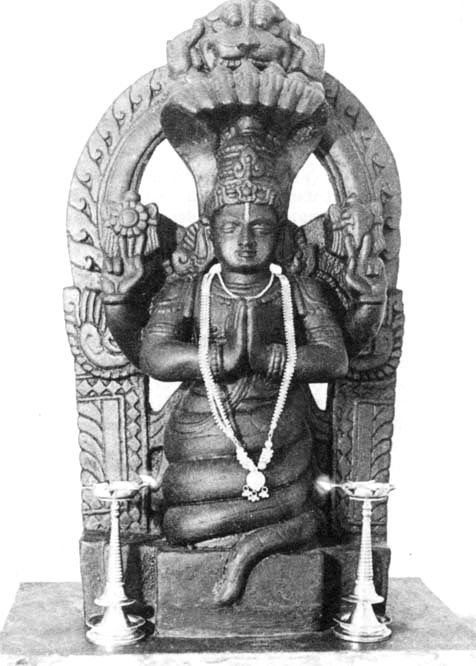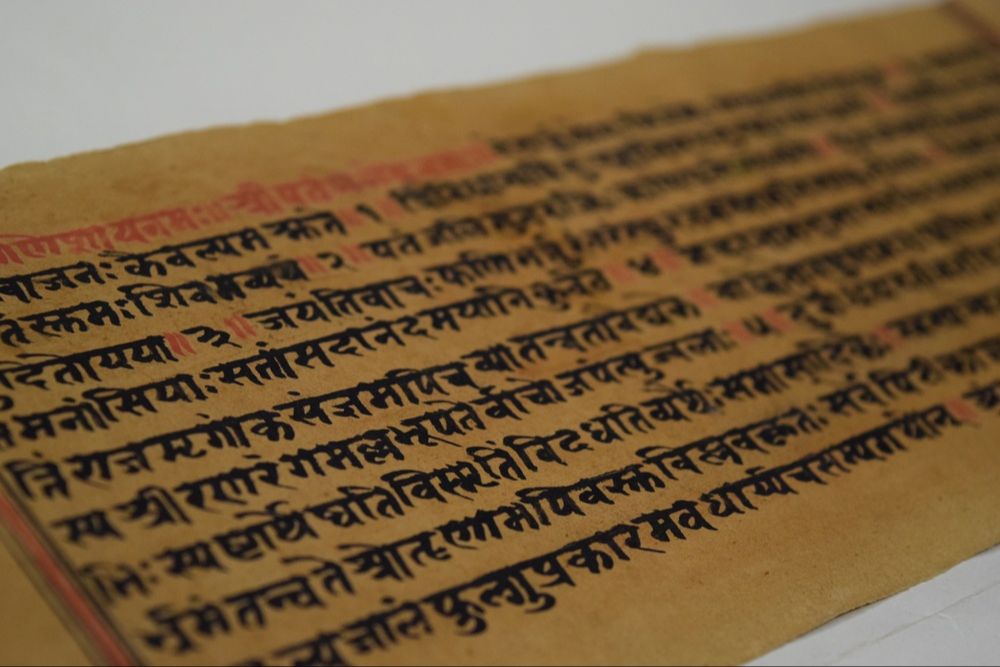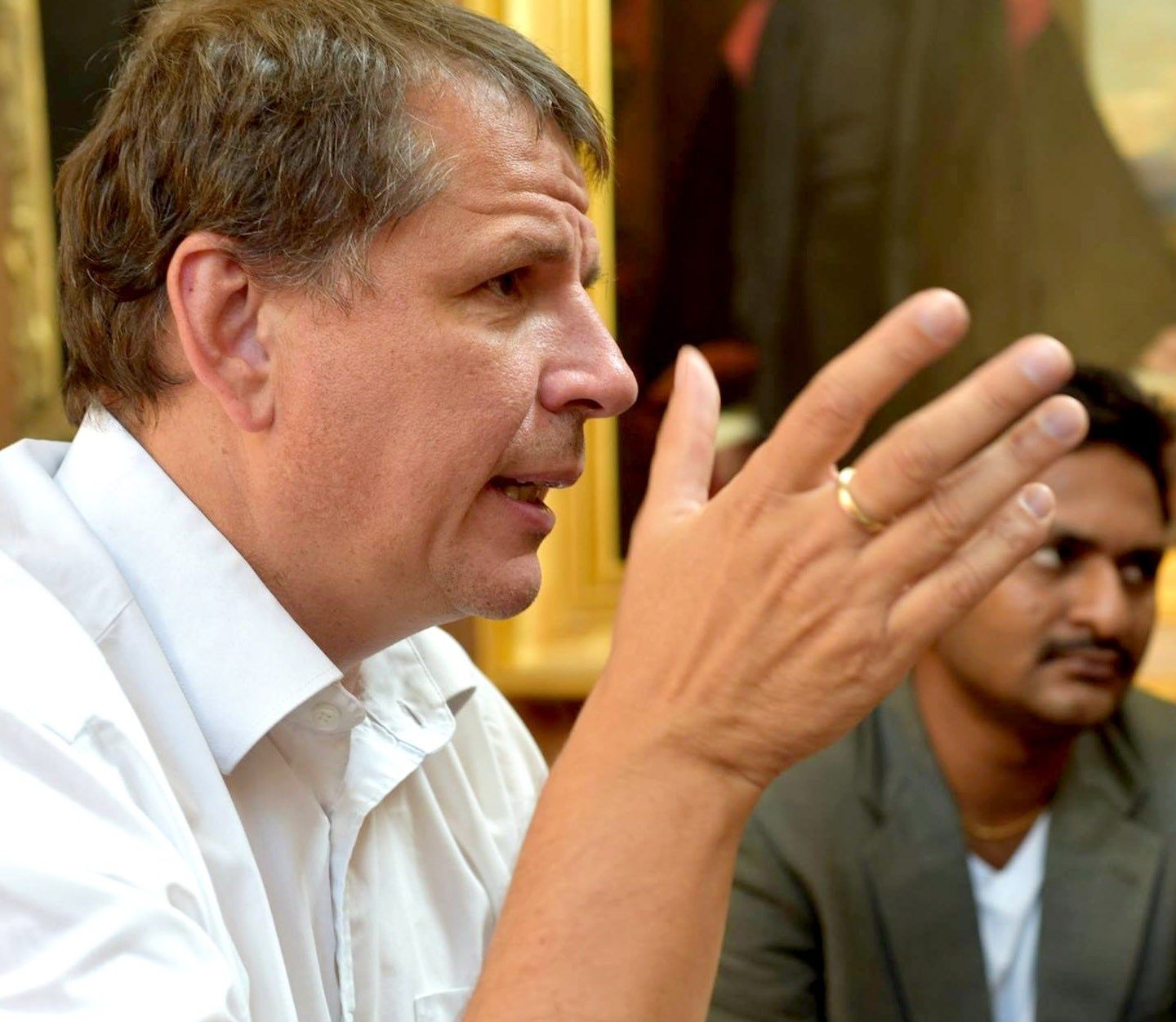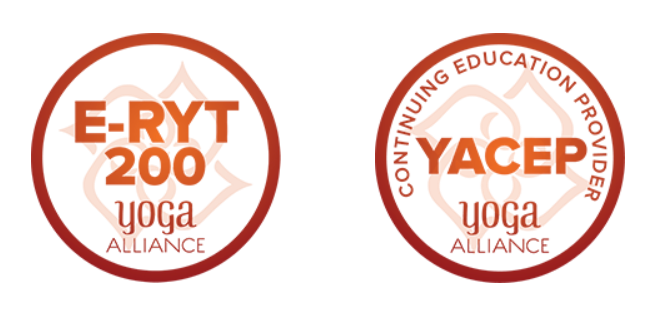
Course Description
Join renowned Indologist Dr. Philipp Maas and a global cohort of students for this unique opportunity to read the Pātañjalayogaśāstra in Sanskrit.
The Yogasūtra of Patañjali, a brief Sanskrit composition consisting of 195 more or less obscure sentences in Sanskrit, is frequently depicted as the foundation of Yoga philosophy. This work, which was translated from its original Sanskrit into more than 40 languages over the last 150 years, is arguably the most widely received Sanskrit composition in the modern globalized world. It provides Yoga practitioners and philosophers in South Asia and beyond with inspiration and guidance concerning Yoga theory, philosophy, and practice.
The iconic status of the Yogasūtra in the modern yoga world sharply contrasts with the state of academic research on this work and its original historical, cultural, religious, and philosophical contexts, which, even after 200 years, is still in its infancy. The exact wording of Patañjali’s composition has not yet been scholarly established for the entire text, and no scholarly annotated English translation of the work exists. However, during the last decades, remarkable progress has been achieved. It has become evident that the Yogasūtra was composed around the year 400 CE, probably together with its oldest preserved commentary, the so-called Yogabhāṣya, by the author-redactor Patañjali.
The sūtras and their original commentary have the common Sanskrit title Pātañjalayogaśāstra, i.e., “The authoritative exposition Yoga by Patañjali.” Virtually immediately after its composition, the Pātañjalayogaśāstra became a recognized widely as the system of Yoga philosophy that teaches how suffering in the cycle of transmigration can be overcome by humans through a unique insight derived from yogic meditations.

Course Text
For everybody interested in Yoga, Indian philosophy, and religion, the Pātañjalayogaśāstra is thus an eminent source of information that is ideally studied in its original Sanskrit.
The present course offers the opportunity for students with basic knowledge of Sanskrit to gain access to the Pātañjalayogaśāstra by reading and interpreting selected passages from the first chapter of this work in the earliest searchable text version under the guidance of Dr. Philipp A. Maas—an internationally renowned scholar who has published widely on the philosophy, meditations, and practice of Pātañjala Yoga as well as on the textual and reception history of the Pātañjalayogaśāstra.
The text to be studied explains in detail the foundations of yoga psychology and the structures and contents of various meditations leading to spiritual liberation from suffering in transmigration.
Prerequisites
We recommend students have 1-2 years of experience studying Sanskrit to get the most out of this course. However, you are welcome to try, and will not be turned away for lack of experience.

Students Will Receive:
- 24 pre-recorded class sessions (90 min each)
- 5 YSACP Credits
- 36 Hours of CE credit with YA
- Course Syllabus (PDF)
- Sanskrit edition of the Pātañjalayogaśāstra (PDF)
- Additional Readings (PDF)
- 12 Multiple Choice Quizzes
- Yogic Studies Certificate upon completion (PDF)
- Access to the private Yogic Studies Online Community Forum
Dr. Philipp Maas
Research Associate, Universität Leipzig
Dr. Philipp Maas is currently a research associate at the Institute for Indology and Central Asian Studies, University of Leipzig in Germany, where he works on a digital critical edition of the Nyāyabhāṣya, a Sanskrit work on spiritual liberation through proper reasoning. Previously he had served as an assistant professor and postdoc researcher at the Department of South Asian, Tibetan and Buddhist Studies at the University of Vienna, the Austrian Academy of Sciences, and the University of Bonn Germany.
He received his M.A. (1997) and Dr. phil. (2004) degrees from the University of Bonn, where he had completed studies in Indology, Comparative Religious Studies, Tibetology and Philosophy. His first book (originally his PhD thesis) is the first critical edition of the first chapter (Samādhipāda) of the Pātañjala Yogaśāstra, i.e. the Yoga Sūtra of Patañjali together with the commentary called Yoga Bhāṣya. He has published extensively on classical Yoga and Sāṅkhya philosophy and meditation, Āyurveda, the relationship of Pātañjalayoga to Buddhism as well as on the textual tradition of the Pātañjalayogaśāstra. He is a member of the “Historical Sourcebooks on Classical Indian Thought” project, convened by Prof. Sheldon Pollock, to which he contributes with a monograph on the development of Yoga-related ideas in pre-modern South Asian intellectual history.

This course is eligible for 36 hours of Continued Education (CE) credits with Yoga Alliance

Stay Informed
Sign up for the Yogic Studies mailing list to find out first about upcoming courses, podcast episodes, promotions, events, and the latest research delivered straight to your inbox.




